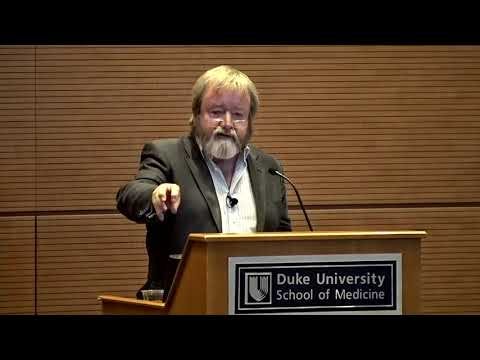"It’s like coming across an entirely new colour"
How healthcare - and the medical profession - must change, if humanity is to survive.
Apparently the Mantis Shrimp has 16 different colour receptors (we have three). That means it can theoretically distinguish millions more colours than humans.
This may be a place to start in considering what it might be like to discover ‘an entirely new colour’ - a metaphor used by Philip Pullman in an interview with the Guardian in late 2022 to describe the effect of reading Dr Iain McGilchrist’s book “The Matter with things”.
You may know Dr McG from his seminal and challenging book “The Master and His Emissary. Even if you did read that, his new magnum opus — weighing in at 1400 pages of highly detailed philosophical and scientific observation and argument — may off-putting.
Like rich food, The Matter with Things is hard to consume in large quantities and requires a lot of digestion between sittings. It comes in two large volumes - half of the second one being references. It took me more than a year to read it.
However, it contains a hugely important message for the medical profession, and indeed the rest of humanity.
He makes a clear and convincing case that our obsession with the mechanistic model of human health and wellbeing — which is to say, assuming and acting on the idea that our bodies are complicated machines — is a function of left-hemisphere attention and highly misguided.
He believes - and I agree with him - that the ‘body as machine’ model does real and lasting damage to patients, practitioners and the world more generally.
Sound interesting? But perhaps you’re not convinced?
Thankfully there’s an alternative to the 1400 pages of text. I would point you to Dr McG’s John P McGovern Lecture at Duke University earlier this year.
The YouTube link is below.
But before you click on it … a warning. This is not TikTok - the video is 90 minutes long. And the juiciest bit — at least for practitioners of medicine — comes towards the end, where a series of doctors stand up and complain about the dehumanisation of medical practice.
For different reasons, the very last 2-3 minutes are, in my view, quite breathtaking (I won’t spoil the moment by describing it - you can fast forward if you want).
If the lecture fascinates you, then I thoroughly recommend reading the book. Although you’ll need a significant level of persistence (and, if reading in hardback, actual physical strength).
If you do, you will be rewarded by seeing the world differently - and in a way that is hard to shake off. Many of the things that may have frustrated or puzzled you about human behaviour - or even your own behaviour - may become more explicable, including the most intractable problems of our time; war, political division, climate change and the threat of nuclear annihilation to name just a few.
Perhaps Dr McGilchrist has written a book that will save humanity from itself. Or maybe acquiring another colour will not prevent us from disappearing as a species and leaving the world once again to grasses, cockroaches and, presumably, the mantis shrimp.



